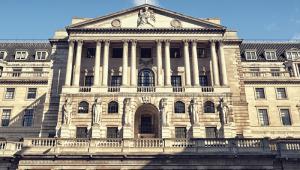How much has the year-long investigation into culture and standards in Britain’s banking system cost the Exchequer? The UK Treasury refuses to disclose, saying the amount has not yet been finalised, but – given the amount already pumped in to prop up our ailing banking system – taxpayers deserve to know the costs of attempting to reform it.
The Parliamentary Commission on Banking Standards - set up in the wake of the Libor scandal in 2012 - is expected to issue its final report on Monday, including its recommendations on pay and bonuses for bankers.
Its original remit was to examine culture and standards in the banking industry, including any lessons to be learned about corporate governance, but has expanded its investigation to include structural issues that have little to do with ethics or standards, such as a potential break-up of RBS.
The Commission has spent over 40 days listening to evidence from a variety of witnesses, including bank bosses, regulators, industry lobby groups and consumer organisations, and taken thousands of pages of written evidence.
Some 25 staff supported the Commission, which was made up of ten commissioners drawn from the House of Commons and Lords, including former Chancellor Lord Lawson and the Archbishop of Canterbury, Justin Welby. One of the first items minuted in their inaugural meeting was that commissioners should all be given iPads to carry out their work.
In a written reply to a Freedom of Information request from Demos Finance, the HM Treasury Information Rights Unit said: ‘We consider that until the size and scope of the charges attributed to the Commmission are settled it would not be in the public interest to disclose provision figures.’
Some estimates predict the work has cost the taxpayer up to £1m.
So, what do we get for our money? The Commission’s report is expected to include recommendations on professionalising the industry through membership bodies and exams, as well as on duties of boards and senior management, and on the role and use of bonuses.
It is also expected to address wider industry issues such as increasing competition within retail banking, and the structure of RBS, which is majority owned by the taxpayer. Previous reports have included a damning verdict of HBOS that heavily criticised its former bosses.
The work follows that of the Independent Commission on Banking, which proposed ringfencing banks’ retail and investment banking operations and which is slowly making its way towards becoming law.
Whatever the total cost of the Commission, this latest report will need to show it knows how to bring about and enforce cultural change if we are to evaluate whether it has been worth the money.
This post first appeared on the Demos Blog











